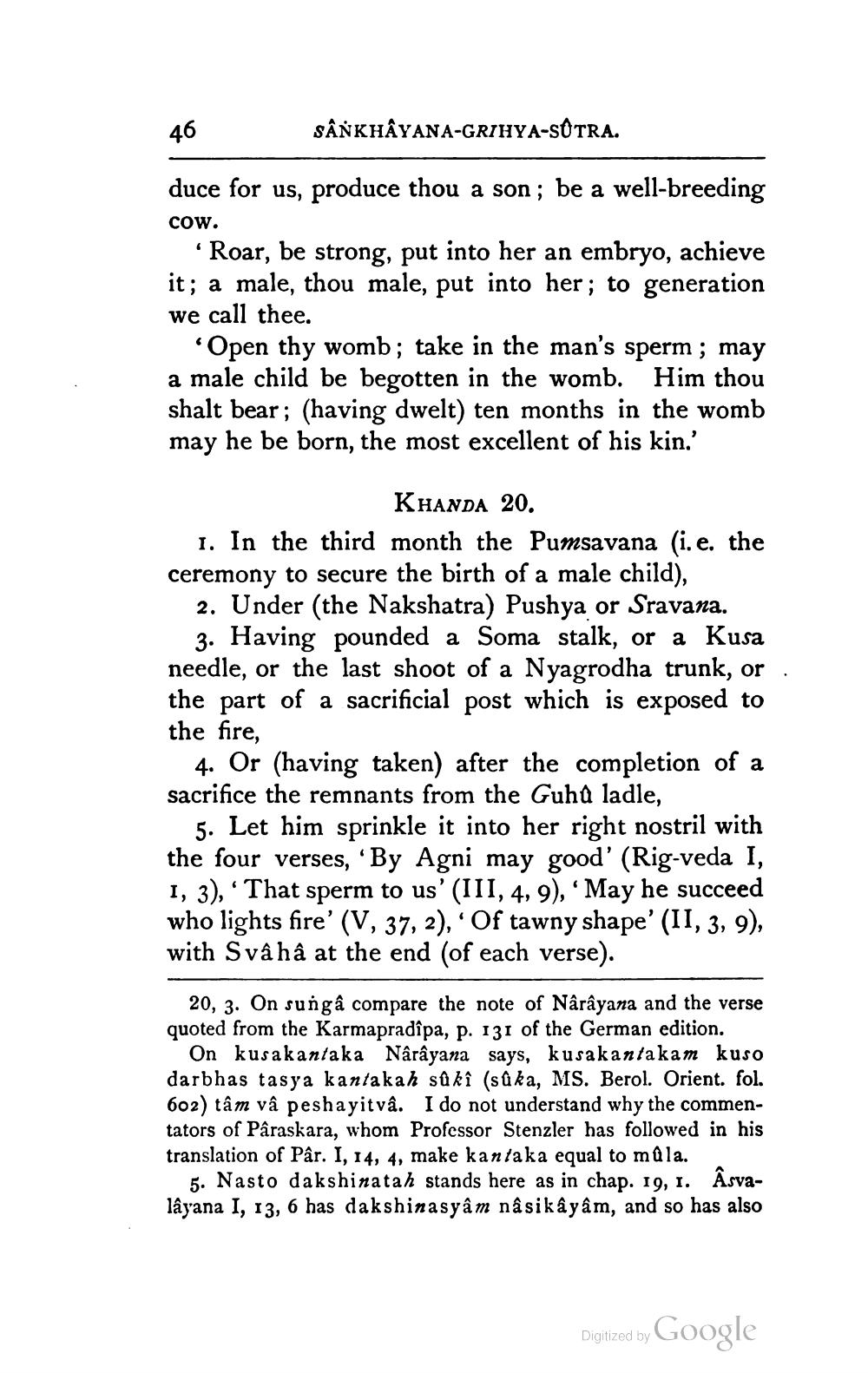________________
46
SANKHAYANA-GRIHYA-SOTRA.
duce for us, produce thou a son; be a well-breeding cow.
Roar, be strong, put into her an embryo, achieve it; a male, thou male, put into her; to generation we call thee.
Open thy womb; take in the man's sperm ; may a male child be begotten in the womb. Him thou shalt bear; (having dwelt) ten months in the womb may he be born, the most excellent of his kin.'
KHANDA 20. 1. In the third month the Pumsavana (i.e. the ceremony to secure the birth of a male child),
2. Under (the Nakshatra) Pushya or Sravana.
3. Having pounded a Soma stalk, or a Kusa needle, or the last shoot of a Nyagrodha trunk, or the part of a sacrificial post which is exposed to the fire,
4. Or (having taken) after the completion of a sacrifice the remnants from the Guhů ladle,
5. Let him sprinkle it into her right nostril with the four verses, ‘By Agni may good' (Rig-veda I, 1, 3), “That sperm to us' (III, 4, 9), May he succeed who lights fire' (V, 37, 2), 'Of tawny shape' (I1, 3, 9), with Svâhâ at the end (of each verse).
20, 3. On sungâ compare the note of Nârâyana and the verse quoted from the Karmapradîpa, p. 131 of the German edition.
On kusakantaka Narayana says, kusakantakam kuso darbhas tasya kantakah sûkî (sûka, MS. Berol. Orient. fol. 602) tâm vâ peshayitva. I do not understand why the commentators of Paraskara, whom Professor Stenzler has followed in his translation of Par. I, 14, 4, make kantaka equal to můla.
5. Nasto dakshinatah stands here as in chap. 19, 1. Âsvalayana I, 13, 6 has dakshinasyâm nâsikâyâm, and so has also
Digitized by Google




